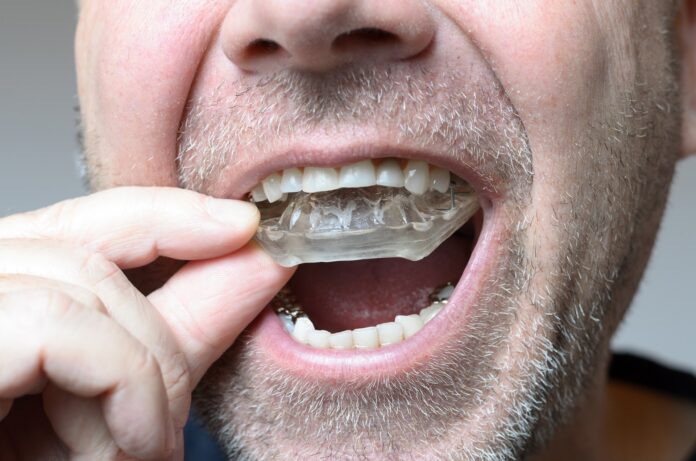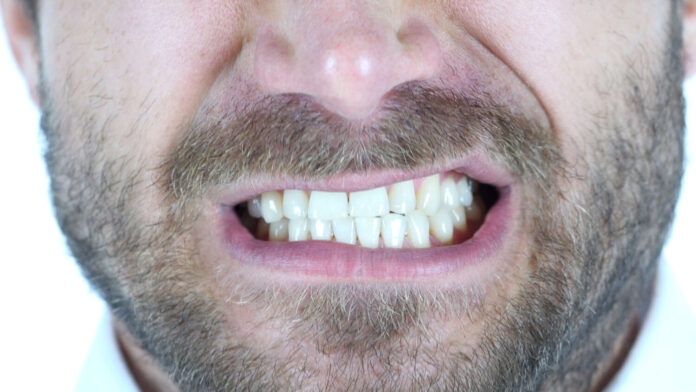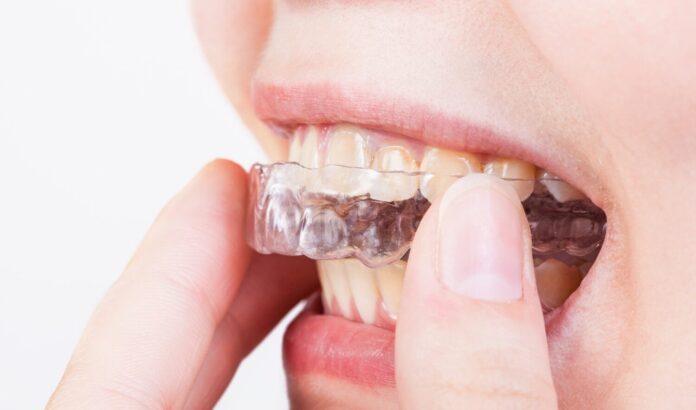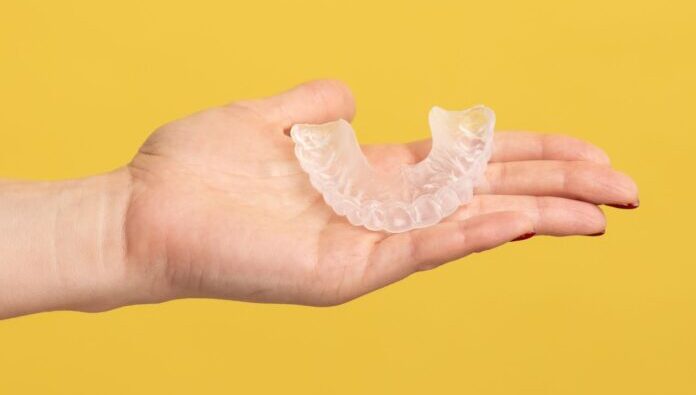
Nighttime teeth grinding, also known as bruxism, is a phenomenon where a person grinds their teeth during sleep. The condition is primarily dangerous because it leads to the wearing down of tooth enamel, changes in the bite, and other dental issues.
Since this happens unconsciously and a person cannot control or stop it on their own, the best solution to this problem is using night guards for teeth.
Night guards help prevent teeth grinding and protect them. Alongside using night guards, it is advisable to consult with a dentist and a therapist for a comprehensive approach to the issue.
Symptoms of Bruxism
People who suffer from bruxism in the privacy of their bedrooms might not realize they have this condition. However, it can lead to specific issues such as increased enamel wear, tooth damage, sensitivity, limited jaw mobility, difficulty opening the mouth, jaw joint pain, and more.
Notice such consequences, accompanied by frequent unexplained headaches, earaches, sleep problems, and pain in the temples, among other symptoms. It may be a reason to seek medical attention, suspecting bruxism. The sooner you address it, the easier it will be to deal with the negative consequences.
What Are Night Guards, and How Do They Help with Nocturnal Bruxism?

Night guards are dental devices that resemble mouth guards and are designed to cover and protect teeth from grinding and damage.
In most cases, it is sufficient to wear this protection on the upper row of teeth. This device is beneficial for both children and adults. In some cases, both upper and lower teeth may require protection.
Varieties of Night Guards
Night guards are effective not only for bruxism but also for various other purposes, including sleep disorders, temporomandibular disorders, chronic snoring, and protection during aggressive contact sports such as wrestling, boxing, football, hockey, and more.
Night guards can be custom-made, offering a tailored solution based on an impression or digital scan of the patient’s jaw. This is the most effective solution as it perfectly matches the patient’s jaw anatomy.
For mild issues, ready-made solutions available in stores can be adapted. To do this, the product is softened in boiling water, then bitten into and adjusted to ensure it functions correctly for the specific individual.
Choosing the Right Teeth Guard

If you decide to choose night guards on your own, you should familiarize yourself with the various options available on the market. Night guards can be soft, hybrid, or hard.
Soft
Soft night guards are made of EVA (ethylene vinyl acetate) rubber, with a thickness of approximately 3 mm, which makes them almost imperceptible, making it easy for users to adapt to them. They are the least durable but are ideal for children and individuals with heightened tooth sensitivity.
Hybrid
Hybrid solutions combine EVA rubber on the inside of the product and an acrylic layer on the outside, providing the necessary rigidity and durability.
Hard
Hard night guards are made from acrylic with a thickness of around 2 mm. These devices are very robust and are suitable for treating even the most severe cases of nocturnal bruxism. However, acrylic guards can feel less comfortable initially due to their tight fit compared to rubber guards.
Features and Advantages of Custom-Made Night Guards:

To create such a product, you must first consult a dental clinic. The dentist takes impressions of your teeth and forwards the results to a dental laboratory. The real magic happens in the laboratory, where the impression is transformed into a device tailored specifically for you.
The manufacturing process typically takes several days to two weeks. Once your custom-made night guards for teeth are ready, you can start using them.
Advantages:
- Properly selected size and structure that corresponds to the patient’s individual tooth alignment;
- Comfort due to anatomical precision;
- Material strength and device design tailored to the intensity of nocturnal bruxism;
- Matching size results in a more durable device, potentially saving you money, even though custom-made night guards for teeth are initially more expensive than off-the-shelf alternatives.
How to Care for Your Night Guard
Bacteria that inhabit your mouth, especially on your teeth, can also settle on night guards, so these devices require careful maintenance. Follow these guidelines:
- After adjusting the night guard to your anatomical parameters, avoid boiling it, immersing it in hot water, or exposing it to direct sunlight, as these factors may cause deformation.
- After each use, rinse the night guard with water and use a soapy solution and a brush for cleaning.
- After washing, let the night guard air dry by placing it on a disposable towel or cloth to absorb excess moisture.
- Store the night guard in a special container to protect it from the elements until the next use.
- Do not leave the case in an open space, especially if you have small children or pets at home.
If you notice that your night guard is worn, cracked, or has defects, or if wearing night guards causes significant discomfort when it previously did not, consult a dentist. Show your night guards to your dentist to understand the cause of your discomfort.
Is It Acceptable to Use a Night Guard When You Have Braces or Dental Implants?
In short, not only is it acceptable, but it is also recommended. By using night guards, you protect your braces or dental implants from grinding or damage, potentially saving you from future restoration costs.
In such cases, it is advisable to order a custom-made night guard designed based on an individual impression to accommodate braces, dental crowns, bridges, or implants.
How Long Should You Wear a Night Guard?
You should wear a night guard every night until you address the symptoms of bruxism. For sports-related models, usage is limited to training or competitions.
A single night guard typically serves for several months to a year or even longer, depending on proper care and the absence of cracks or chips, allowing you to extend its use.
Remember that night guards do not resolve the issue of nocturnal bruxism but only protect against its manifestations. In addition, you should seek therapy to reduce muscle spasms and address the root cause of bruxism.
Depending on the cause, medical therapy, dental treatments, or consultations with a psychologist or psychotherapist to reduce stress and anxiety, which often contribute to this condition, may help. Continue reading on perfect oral care.








